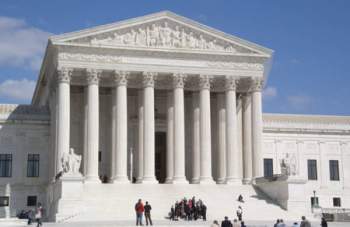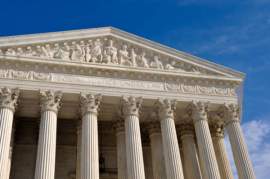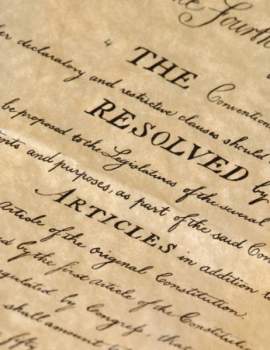
Major Decisions-Gibbons v. Ogden

Popular In Constitution
Purpose Of Lifetime Appointment And Pros And Cons Enumerated Powers Bicameral Legislature Background Article 3 Of The Constitution We The People 1st Amendment Who Wrote The Constitution Judicial Review Equal Protection Clause 5th Amendment 10th Amendment Three Fifths Compromise
Prior to the United States Supreme Case of Gibbons v. Ogden, all commerce that was between the states was regulated by the states themselves. However, the case levied against Thomas Gibbons by Aaron Ogden would shape the way interstate commerce would ultimately change.
Gibbons sued Ogden on the basis that the State of New York granted a license for the operation of a steamboat to carry passengers from the State of New Jersey to the ports of New York City. Ogden argued that he had the sole monopoly over that specific waterway route and Gibbons was infringing upon a State-issued mandate or permission. However, Gibbons was issued a license for the same route by the Federal Government, specifically by the United States Congress (See Also: Article I).
Ogden would employ the argument that states controlled the laws regarding interstate matters. Furthermore, it was also argued that the State powers regarding interstate trade and commerce were on the same plane as those of Congress and should be equally upheld. The New York Courts would rule in favor of Ogden, restricting Gibbons’ use of the same route and maintaining Ogden's monopoly.
Gibbons v. Ogden would eventually appeal the State's decision and
the matter would reach the Supreme Court. Presiding over the matter was Chief Justice John Marshall,
now famously known for being a key component in shaping the application and
interpretation of the Constitution and other important Supreme Court cases.
The main issue at hand that would be considered by Marshall was Article I, Section 8 of the United States Constitution, known as the Commerce Clause. The Commerce Clause stated that Congress would have the power "To regulate Commerce with foreign Nations, and among the several States, and with the Indian Tribes." Marshall would interpret the Commerce Clause on a broader scope, in which navigation would be included under the umbrella of the term "Congress" as used in the text.
Furthermore,
the Supreme Court would also reach the conclusion Congress' power over State
commerce should incorporate all aspects of the practice and such power would,
therefore, also include regulation of interstate commerce and trade. Marshall
would eventually deem that the monopoly of the route established by the State
of New York and Ogden was unconstitutional, for it interfered with the power of
Congress to regulate interstate commerce. The Supreme Court overturned New
York's decision and ruled in favor of Gibbons.
Through Gibbons v. Ogden, the United States
Supreme Court helped re-establish Congress' power over interstate commerce and
reinforce the Constitution as the supreme law of the land. Furthermore, it also
helped re-affirm the central Government's power in the United States’ Federal
structure. The decision affirmed that even though both states and the Federal Government
have delegated and specific powers enumerated in the United States
Constitution, it is the Federal power of the Government, in which Congress is
supreme, that questions of jurisdiction of interstate commerce have prevalence.
The only time that State legislation would have any impact over interstate commerce would be in situations where concurrent jurisdiction would apply, such as for taxation purposes (See Also: However, there would be a period in time in which the Commerce Clause would be restricted due to another case, United States v. E.C. Knight Co., where congressional power would be limited. This period would last from 1895 until the 1930s, in which the Supreme Court would reinstate the original application of the Commerce Clause, as established in Gibbons v. Ogden.).
NEXT: Major Decisions-Marbury v. Madison





















